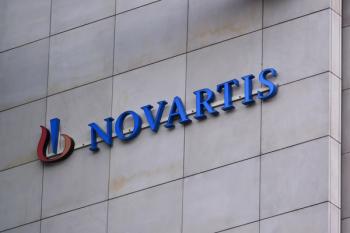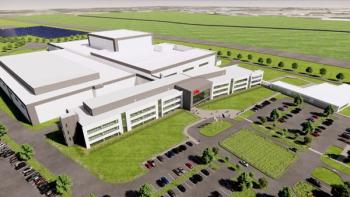
Q&A With Ignacio Medina, founder, Zetta Genomics
Genomic data is transforming precision medicine—but progress depends on it being easily available where it’s needed. Pharmaceutical Executive speaks to Ignacio Medina, founder of Cambridge University spinout Zetta Genomics, to see how next-generation open-source data technologies accelerate discovery in the lab and patient benefit in the clinic.
Pharm Exec: What inspired you to found Zetta Genomics—what is the problem you solve?
Medina: In the decade following the mapping of the human genome, genomics was something of a cottage industry: low volume, highly specialized, and time intensive. This all changed in 2013 with Genomics England’s 100,000 Genomes Project. The ask was significant: to not only sequence and analyze an unprecedented number of genomes, but also to build the infrastructure and design and implement a big data solution to apply genomic medicine at the population level—in this case, in the UK’s National Health Service.
While rightly initially focused on issues such as patient consent and sequencing technologies, it very quickly became clear that data management was going to be a major challenge. Those of us working on the project saw that existing data tools were not going to be able to cope with all the data and provide the performance needed. I don’t think it’s a stretch to say that we were trying to build a Tesla with parts designed for a go-kart.
Population-scale genomic data massively overwhelms the capabilities of existing flat file-based systems. What researchers and clinicians need is a dynamic and secure data platform that digests unprecedented volumes of complex data, supports its interactive interpretation, and keeps it secure but easily accessible—from both lab and clinic.
Zetta Genomics’ XetaBase platform, which is based on the open-source OpenCB project, delivers to this need—speeding the development of precision diagnostics and therapeutics, and delivery to patients through the healthcare system.
Pharm Exec: What is it that makes genomic data so different to warrant Zetta Genomics’ radically different approach?
Medina: Traditional storage is well suited to information as an artifact but wholly unsuited to the dynamic environment of genomic medicine.
Genomics changes the in vitro diagnostic (IVD) paradigm—moving the linear assay-to-result workflow to an iterative data-driven investigation. Essentially, we are born with our genome and it only needs to be measured once, but our ability to interpret and gain value from it is growing all the time. It’s not the genomic data that changes but rather the sophistication of the questions we ask of it.
In practice, this might see a patient who presents today fail to get a diagnosis. In a month, year, or decade’s time, however, a new analysis may provide that diagnosis to a researcher or clinician without them ever having to make additional assays.
It’s also incredibly important that this data is conveniently secured and accessible to the people who need it in the places they use it. Until now, there have been too many barriers blocking this access, not least the need for in-demand specialist bioinformaticians.
XetaBase delivers against the needs of the genomic era, with data that’s constantly and automatically re-interrogated using the latest analyses, with automated alerts should there be a hit. It brings the power of genomics into the hands of the people who can best use it.
Pharm Exec: You’ve recently secured a new round of seed funding. What will this mean to Zetta Genomics?
Medina: Investment is obviously important, but this seed funding round represents far more than finance. The quality of our investors shows confidence in what we’re achieving, with Nina Capital and APEX Medical having incredible track records in investing in transformational technologies. The value of investment from Cambridge Enterprise speaks for itself—an investor committed to innovations that can improve millions of lives and whole societies.
It also underlines our commitment to collaboration and partnerships. We’ve built strong relationships with global tech and healthcare leaders such as Fujitsu Spain, Future Perfect Healthcare, Microsoft, and the UK’s National Health Service—all inspired, as we are, by the potential of data to transform precision medicine.
It’s hardly surprising that we are a company driven by collaboration, as XetaBase is built on an open-source software, OpenCB project. It’s a project that I founded and continue to lead alongside a global community of people and companies who have contributed their expertise, passion, and altruism.
Pharm Exec: What’s next for Zetta Genomics?
Medina: In terms of this seed funding round, we’re investing in our potential, expanding into Europe and North America, and attracting talent to drive our platform development and commercial offering.
In terms of what XetaBase can achieve? What I find really exhilarating about this technology is that there are few limits. It is an enabler across virtually every research and clinical field in genomics, with the power to both drive and be driven by advances in precision medicine.
Aligned with its open-source origins, my ambition is to see XetaBase contribute to ever-more effective collaboration, inspire existing and new avenues of discovery, and change the lives of millions of people for the better.
Newsletter
Lead with insight with the Pharmaceutical Executive newsletter, featuring strategic analysis, leadership trends, and market intelligence for biopharma decision-makers.




